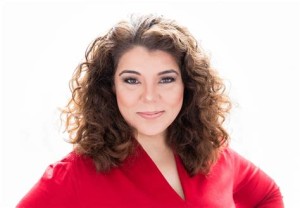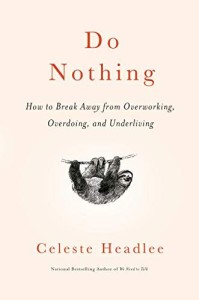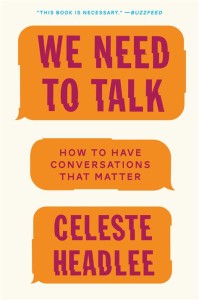Celeste Headlee: Communication and Human Nature Expert, Award-winning journalist, and Author. One of top 10 Most Viewed Talks on TED site.
Celeste Headlee’s Speech Topics:
Ten Ways to Have Better Conversations
Enter every conversation assuming you have something to learn.
Celeste Headlee’s Having Better Conversations presentation focuses on the science-based fundamentals of communication and includes thought-provoking topics like the smarter you are the worse you are at communicating. This highly motivational talk, with 10 practical lessons, is designed to inspire self-confidence and introduces strategies for enhancing personal and professional relationships by simply becoming better at having conversations.
Celeste’s workshop offers concrete actions to improve attendees’ conversational skills and to broaden their view of what constitutes a good (and civil) conversation. Having a conversation is like playing a game of catch. Communication has increased in our technological age, but meaningful conversation has plummeted. If a conversation is one sided, the ball drops. When your job hinges on how well you talk to people, you learn a lot about how to have conversations – and that most of us don’t converse very well. Celeste knows the ingredients of a great conversation; honesty, brevity, clarity and a healthy amount of listening. She argues that listening is the true power of what separates those of us who can gain a competitive advantage in whatever it is we are trying to achieve. Knowing what conversational tool should be used (and when) is critical to cultivating relationships.
Do Nothing
Breaking away from overworking, overdoing, and underliving
Celeste Headlee’s Do Nothing examines the cult of productivity addressing long-held assumptions about time use, idleness, hard work and habits that are ultimately doing us harm, providing tangible to reverse the trend that’s making us all sadder, sicker and less productive, to return to a way of life that allows us to thrive.
In her Do Nothing focused workshop(s) tailored to meet a company’s specific structure (fully in office workforce, fully remote workforce, combination of the two), Celeste addresses topics including:
-Burnout – what it is, how to recognize it, actionable ways to avoid it
-Work/Life Balance
-Productivity – including the myths about it and ways to TRULY be more productive
AI and Communication
Using AI with intention and care to embrace the benefits without eroding critical human connection
AI has the potential to dramatically change the way we communicate, for better and worse. That means we all must use AI in an intentional way, to make use of the benefits without allowing it to negatively impact our connections.
Celeste notes the benefits include:
-One of the biggest benefits in AI communication is in breaking the language barrier, allowing those who do not speak each other’s language to communicate in an authentic way.
-AI software can also be designed to inject more positive language into any conversation, making the humans who communicate with a bot feel more upbeat.
-It can also increase the speed of communication, which can be crucial in emergency situations, but also benefits organizations who rely heavily on customer service.
The downsides:
-Research shows when someone suspects their conversational partner is using AI to respond, they’re more likely to perceive them as less cooperative and feel less of a connection to them.
-AI bots don’t have the same emotional intelligence that humans have, so they can’t understand human emotions, sarcasm, or emotional needs.
-People report feeling that their conversations with AI chatbots feel transactional and devoid of empathy. In other words, AI partners can be nice, but not kind.
Celeste offers deeply researched details for how to use these tools with intention and care to ensure they don’t erode the human connection that is crucial to well-being.
Teamwork and Belonging in Hybrid Workplaces
Create an effective hybrid work culture that supports teamwork and collaboration
Many workers want to work from home when they can, and that’s healthy. Research shows that a hybrid schedule, where workers come into the office 1-2 days a week results in the highest levels of productivity and well-being. But maintaining healthy communication and collaboration in this new environment requires some adjustments to the way we work.
Celeste offers key insights and research about this new way of working and teaches new skills and techniques that help support teamwork even when some members of the team are remote or working in other areas of the world.
Belonging
Building an environment of belonging
Belonging is the most important need that humans have after food, shelter, and water. When we talk about inclusion, we really talking about creating a work environment where people feel they belong. Learning to do this can be one of the most powerful methods for repairing morale and creating a healthy, collaborative culture.
Celeste offers key research about belonging and actionable takeaway and practice for both leaders and individual contributors to improve inclusion and increase belonging for all members of the team.
Making Space for Creativity and Innovation
Building a work environment that boosts focus, creativity and innovation
Research shows that most workers never have uninterrupted time to focus on their work. Economic studies prove that there is an economic opportunity to encourage deep focus that’s worth $1.4 trillion in the US alone. With a few small changes, leaders can create an environment that allows workers to spend some of their day focusing on their work, thereby increasing the likelihood of creative problem-solving and innovation. It also boosts morale and reduces turnover.
Celeste offers research-backed insights and actionable takeaway for creating the space and environment needed to improve focus, creativity and innovation from all members of the team.
Having Better Meetings
Reducing wasted time and profit through fewer, more effective and efficient meetings
Managers spent less than 10% of their time in meetings in the 1960s. Now, the average leader spends more than half their time in meetings. 71% said meetings are unproductive and inefficient. 64% said meetings come at the expense of deep thinking. Unnecessary meetings waste $25 million a day in the US.
Celeste offers guidance for how to hold fewer meetings and actionable takeaway for making the ones you do hold more impactful, effective and efficient.
Leading/Building Team Culture in the “New Normal”
Navigating the recent/current events radically changing an already fast-evolving work landscape
Melding insights from both We Need to Talk and Do Nothing, team culture workshop(s) are tailored to meet a company’s specific structure (fully in office workforce, fully remote workforce, combination of the two), Celeste addresses topics including:
-Work from home stress – how work stress actually increases in a work from home scenario noting studies that reveal going into an office can provide employees with stress relief and the importance in any transition to a work from home structure to address the increased chances for burnout
-How to communicate remotely and maintain morale and team cohesion – i.e., transactivity How to remain productive despite the distractions of home – accountability of team members, etc.
-How to give feedback to remote workers in a constructive way, how often to check in
-Scheduling your workday to increase productivity
-Small changes that have big impacts when it comes to creative problem solving and streamlining processes
-How to structure a conference call to keep them short and effective
Healthy Diversity
Celeste brings a science-based approach to her work on inclusion, belonging, and productive collaboration. The most successful teams are those that communicate effectively, handle conflict productively, and embrace the unique talents and skills of all team members. Research shows definitely that the most innovative workplaces are those where connection and collaboration are encouraged and workers are trained in interpersonal skills, transactivity, and cross-silo partnerships. Creating an inclusive environment can be as simple as learning how to talk through inevitable conflicts without escalating into argument and focusing on policies that ensure everyone feels comfortable and welcome, regardless of their backgrounds, experience, age, or identity. The strategies that are proven to promote well-being among workers also happen to be the ones that increase productivity and reduce turnover.
Additional Topics:
*Descriptions available upon request
-Burnout – How to prevent it, how to recover
-Healthy Workplace Culture – Creating an environment where everyone can thrive and succeed
-Maintaining Wellbeing in an Anxious World
-Science-based Solutions to Workplace Conflict
TEDx Video:
Celeste Headlee’s Speaker Bio:
Celeste Headlee is a communication and human nature expert. She is an internationally recognized journalist and radio host, professional speaker and author of bestselling book We Need To Talk: How To Have Conversations That Matter, Do Nothing: How to Break Away from Overworking, Overdoing, and Underliving, Speaking of Race: Why Everyone Needs to Talk About Racism and How to Do It, You’re Cute When You’re Mad: Simple Steps for Confronting Sexism, and It Starts with Self-Compassion. Her TEDx Talk, 10 Ways to Have a Better Conversation, has been viewed over 36 million times.
Close to 50,000 talks have been given at 10,000 events since the TED program launched in 2009. Celeste’s talk is one of the 10 most-watched talks posted on TED’s homepage. In her 20-year career in public radio, Celeste has been the Executive Producer of On Second Thought at Georgia Public Broadcasting and anchored programs including Tell Me More, Talk of the Nation, Here and Now, All Things Considered, and Weekend Edition. She also served as co-host of the national morning news show, The Takeaway, from PRI and WNYC, and anchored presidential coverage in 2012 for PBS World Channel. Celeste is a regular guest host on NPR and American Public Media, serves as an advisory board member for ProCon.org and The Listen First Project, and received the 2019 Media Changemaker Award.
She is the host of “Women Amplified,” a podcast from the Conferences for Women, the largest network of women’s conferences in the nation, drawing more than 50,000 people to its annual events. Celeste also hosts the the “Freeway Phantom” and “Big Sugar” podcast series.
As an NPR host and journalist, Celeste has interviewed hundreds of people from all walks of life. Through her work, she has learned the true power of conversation and its ability to both bridge gaps or deepen wounds. In a time when conversations are often minimized to a few words in a text message and lack of meaningful communication and dialogue abounds, Celeste sheds a much-needed light on the lost and essential art of conversation.
Celeste is an expert in human nature, reclaiming common humanity and finding well-being. She frequently provides insight and commentary on what is good for all humans and what is bad for us, focusing on the best research in neuro and social science to increase understanding of how we relate with one another and can work together in beneficial ways in our workplaces, neighborhoods, communities and homes. As a mixed-race journalist of black and Jewish descent, Celeste also speaks candidly about how to converse on race and other difficult subjects. People respond to Celeste because she connects the dots, explaining the “why” of our behavior in clear terms and providing actionable strategies for doing things differently.
Celeste is the president and CEO of Headway DEI, a non-profit that works to bring racial justice and equity to journalism and media through targeted training and interventions, and she serves on the board for the National Center for Race Amity. She is the granddaughter of composer William Grant Still, known as the Dean of Black American Composers and is a trained operatic soprano. She lives in the DC area with rescue dog, Samus.
Testimonials:
Celeste crushed it. People absolutely loved her talk.” ~Philip Inghelbrecht, Tatari
I absolutely loved your talk to kick start the event yesterday! Conversation is our superpower… Thank you for sharing your expertise and knowledge to the crowd! ~Jerad Thomas, HSMA
Celeste Headlee was the keynote speaker at our Annual Conference. Definitely a highlight for our audience. Her comments on how to have better conversations were on point and timely and she offered useful tools and tips. I would HIGHLY recommend her as a keynote speaker. ~APIC
The event went as expected and the attendees enjoyed Celeste very much. The team’s response and comments afterwards were that they really enjoyed her speaking to our group. ~Chobani
Celeste was a hit! She kept the audience captivated and her remarks were spot on. I heard many positive comments and many referencing her materials – and the points she made – during the rest of the conference. We are extremely happy and I think attendee evaluations will reflect the group’s satisfaction (and enthusiasm) for Celeste! ~NCSL
We engaged Celeste to headline a thought leadership meeting of our top clients. The dialogue began with an adroit sampling of fascinating science around business communication and quickly morphed into a quality conversation among some very energized and engaged executives. We enjoyed the enthusiastic feedback from our clients and doubtless strengthened our relationships with them through their interaction with Celeste. Engaging Celeste was not only a very worthwhile experience for our clients but a great investment for our business. ~Templar Advisors



